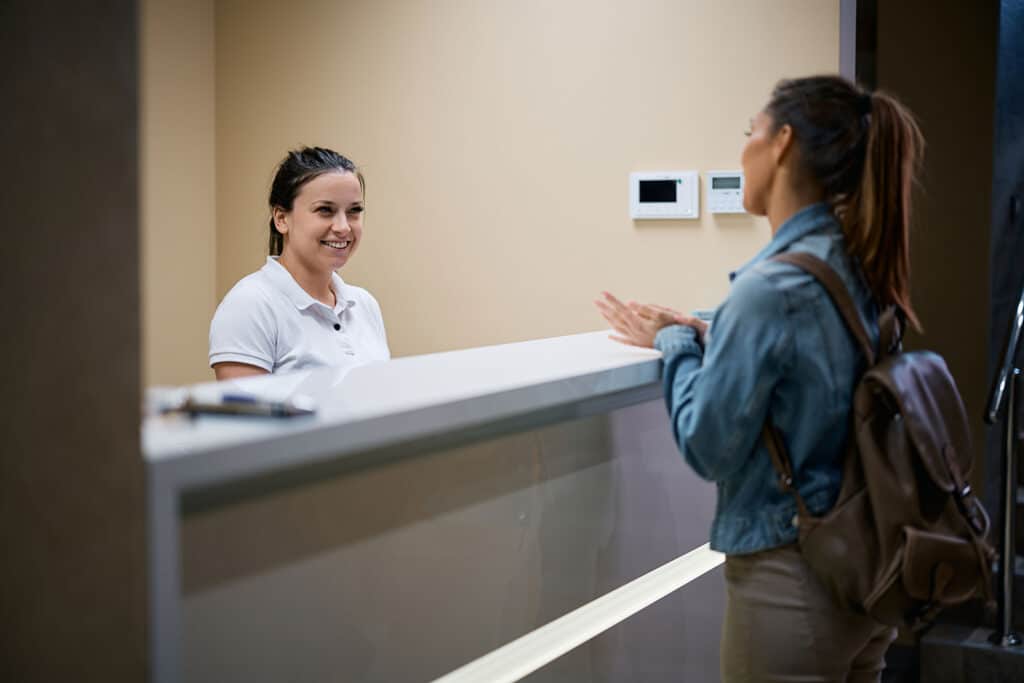Are you interested in sober living homes as a way to continue your recovery from substance use disorder? Sober living homes are sometimes referred to as halfway houses because they represent the halfway point between getting formal treatment and returning home. You may choose to enter a sober living home after completing your detoxification or after completing a residential or inpatient substance abuse treatment program. These homes help individuals who are recovering from substance use disorder by providing them with structure, accountability and a supportive environment. Let’s take a look at how a sober living home can benefit your recovery.
Table of Contents
Understanding the Concept of Sober Living
Sober living homes provide individuals, who are in recovery, a safe space that is drug and illicit-substance-free. These homes are group environments where multiple people live together. Each person may have their own room, or they may share the room with a roommate. There are also common areas, like the living room, bathrooms and kitchen. This type of living arrangement helps facilitate peer support while holding each member accountable for their progress and household responsibilities.
Each home generally has its own criteria for admission, so it’s important to check with the specific house in order to make sure you qualify. Most homes require that the individual has at least completed detox. Some, however, may require the completion of a residential or inpatient treatment program. Sober living homes also have rules that each person must follow, including:
- Not bringing drugs or alcohol onto the property or into the home.
- Participating in various activities, like chores and house meetings.
- The residents must sleep at the home a certain number of nights each week.
- The residents must adhere to travel restrictions.
- Residents are typically not permitted to have overnight guests.
- Residents must be on the property by a certain time each night.
- Residents must participate in drug testing and remain drug-free.

Benefits of Sober Living Homes
For individuals who aren’t quite ready to return to their regular homes, sober living can provide many benefits as they make the transition from formal treatment to living on their own. Many people choose to move into a sober living home because of its supportive environment. In fact, this is the biggest benefit of entering a sober living home. Other benefits include:
- You’ll live in a structured environment. – This can help fill your free time while you work on maintaining your sobriety.
- You’ll be held accountable. – Individuals living in sober homes must pass regular drug screenings and do certain chores around the home, like keeping their rooms clean, cleaning common areas and doing the dishes.
- You don’t have to worry about being exposed to illicit substances. – There is very little temptation in a sober living home because no one is allowed to bring drugs or alcohol onto the property.
- You’ll receive peer support. – The individuals staying in a sober living home are all recovering from substance use disorder. This gives you the opportunity to share stories and listen to the stories of others.
- It’ll help you stay sober. – Sober living homes can help you prevent relapses by reducing the likelihood of coming into contact with triggers while continuing to develop your relapse prevention strategies and coping skills.
- You’ll develop life skills. – If you’ve never cleaned, washed laundry or held a job for very long, a sober living home can help you build these skills. Some programs even offer vocational rehabilitation.
Sober Houses in NYC: An Overview
If your goal is to find a sober living home in a supportive community, you should consider choosing one in NYC. New York City has a vibrant recovery community where you can find resources for mental health and substance abuse. You’ll also get access to diverse treatment options, including residential, inpatient, outpatient and partial hospitalization programs as well as sober living homes. In fact, living in a sober home after your initial treatment program can help you find educational and employment opportunities while you continue to recover.
You’ll also find plenty to do to help you fill your free time. NYC is home to plenty of cultural activities, including museums and art centers, and the city offers plenty of indoor and outdoor activities, including fitness centers, yoga studios and even martial arts. You could also take classes on painting or pottery making. You can also find sober living homes that cater to almost any lifestyle, religion or creed.

Types of Sober Living Homes Available in NYC
- Gender-Specific Sober Living Homes – Sober living homes that specifically help males or females.
- LGBTQ+ Sober Living Homes – Sober living homes that provide help for individuals who identify as gay, bisexual, pansexual, lesbian, non-binary and transgender.
- Co-Ed Sober Living Homes – Sober living homes that house men and women together.
- Young Adult Sober Living Houses – Sober living homes that are designed for individuals in their late teens or early 20s.
- Family-Friendly Sober Living Homes – Sober living homes that provide specific services to individuals who have families and/or young children with whom they are trying to rebuild their lives.
- Luxury Sober Living Homes – These homes provide high-end services, like spacious living, individual rooms, gourmet meals and fitness studios.
- Transitional Sober Living Homes – Sober living homes that are specifically designed for individuals who have completed an initial recovery program and are transitioning to living full-time at their place of residence.
- Dual-Diagnosis Sober Living Houses – Sober living homes that are specifically designed for individuals who are recovering from both substance abuse and mental health disorders.
Choosing the Right Sober House in NYC
When choosing the right sober living house in NYC for your needs, it’s important to consider a few factors, including:
- The Location – Make sure the location is close enough to your work, education and existing support group meetings and counselors that you can get to all your obligations.
- The Cost – Make sure you can afford the cost of the sober living home. You may be able to find homes that take your insurance, offer services on a sliding scale or provide other financial arrangements.
- The Rules of the House – Make sure the rules of the house are in alignment with your personal goals for your recovery and are reasonable.
- The Programs and Services Offered – Ask the sober living home about any services and programs that they offer or access to such services. At a minimum, you should be able to access therapy, group programs and educational and vocational opportunities.
- The Other Housemates – Meet a few of the housemates and speak with them. These are the people you’ll be living with, so it’s important that you feel like you can get along with them.
- The House Manager – Meet and speak with the house manager. Are they qualified and experienced in their position? Does he or she seem approachable? This is the person that keeps the house running smoothly and enforces the rules, so it’s important that you feel like you can approach them.
- The Houses Reputation and Credibility – Is the home accredited with the National Alliance for Recovery Residences (NARR)? This organization offers accreditation for sober living homes that operate with integrity, uphold residents’ rights and create a culture of empowerment. They also work to ensure the home is safe, and that the staff members have the appropriate education, skills and abilities to complete their jobs. You can also ask the current residents how they like the home and read reviews or ask for recommendations from your current treatment providers.
- The Safety and Security of the House – What steps do the staff members take to ensure the home is safe and secure? Do they have posts fire safety protocols and steps for handling emergencies?
- Your Length of Stay and Transition Plan – Ask about their various lengths of stay, including the average stay and how they help individuals transition out of the sober living home back into their homes and society.

What to Expect in a Sober House
When moving into a sober living house in NYC, you can expect certain things during your stay. This includes having to obey certain rules, and some sober living homes can be quite specific and strict in their rule and regulations.
- You cannot use drugs or alcohol during your stay, and you cannot bring drugs or alcohol onto the property.
- Many group homes require attending house meetings and support group sessions.
- You will be drug tested to ensure your sobriety.
- Many sober living homes have set schedules. This could include waking up and going to bed at a certain time.
- You will have chores and tasks to complete during your stay.
A typical day in a sober living home might mean waking up and getting dressed by a certain time so that you are ready for the day’s activities. Meals may also be served at a certain time. Once you’re dressed, fed and ready for the day, you may be required to attend support group meetings, or you may be free to travel to your therapy sessions at another location.
In the afternoon or evening, you may be encouraged to participate in some personal development activities, like art or writing therapy, meditation or exercise. If you have work or school during the day, you’ll be allowed to meet those obligations. While you’re off the property, you may be required to check in with the house several times during the day. You may also have to attend house meetings weekly.
Many sober living homes have a curfew. This means that you’ll have to be back inside the home by a certain time each night in order to perform your evening routine, relax and unwind and get ready for the next day.
Treatment Center’s Connection to Sober Living
Your treatment center can be integral to helping you find and get accepted into a sober living home. Many drug addiction treatment centers have relationships with sober living homes and can provide you with a recommendation and a referral. Not to mention, you may be fortunate enough to get treatment at a center that offers collaborative treatment planning and aftercare services. This can help you transition into the sober living home while still receiving some services from the treatment center on an outpatient basis.

Taking the Step towards Sober Living
If you’re looking into sober living as an option for your ongoing recovery, you can do it. To get started, you may wish to find a treatment center in NYC, like Long Island Treatment Center, that has a network of transitional sober living facilities where you can go after you complete your initial treatment program. Working with a treatment center can help make the transition into a sober living home easier. This is because the treatment center can tell you what you can expect and notify the sober living home about your arrival.
Choosing a sober living home after your detox or initial treatment program has concluded can help keep you on the path to recovery and long-term sobriety. This is because you’ll still be in a safe, drug-free environment where you can learn valuable coping skills and life skills. You’ll also be able to meet with, talk to and form relationships with people who have similar challenges as yourself. This can help foster a sense of community and provide you with valuable peer support.
To get help for your substance use disorder and to learn more about how sober living can help you, call us

